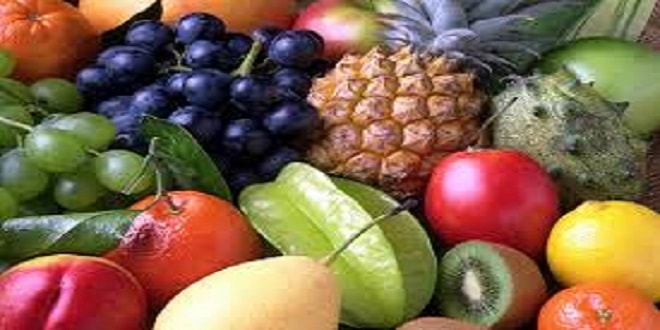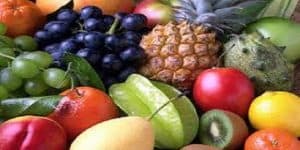Cognitive Performance and IQ Aided Foods for Students

There are many factors that may be responsible for students’ poor academic performance. One of the factors may be deficiency of Cognitive performance and IQ aided foods. For this reason, I have decided to research foods that have the necessary nutrients that can aid cognitive performance and IQ.
The role of a balanced diet in our body can’t be overemphasized. And as student you need to eat healthy food for you to perform maximally in your studies. For example, a depressed mind or someone suffering from mood swing can’t achieve much academically. These two among other disorders have been identified as mental illness. If you are experiencing any of the mental illness as a student or you are performing below average, you may need to check your diet first before considering other possible causes.
Listed below are some of the Cognitive Performance and IQ Aided Foods which contains Vitamins and trace elements that the brain needs to perform well.

According to researches performed by Bourre, he observed the following relationships between vitamins and cognitive performance.
- vitamins B12, B6, A, and E ensure a better visuo-spatial memory and improve abstraction test results
- vitamin C improves visuo-spatial performance,
- thiamine (B1), riboflavin (B2), niacin (B3), and the folates improve the level of abstract thought and lead to a more favourable biochemical status
Vitamin B9 (folic acid)
Foods that are rich in this vitamin are beans, lentils, okra, citrus fruits, peas, avocado, brussels sprout, dark leafy green, maize, chickpeas, almonds, chestnuts, cress, spinach, leeks, asparagus, broccoli, cauliflower etc. It has been observed that the deficiency of vitamin B9 decreases intellectual capacity and impairs memory.
Vitamin B2 (riboflavin)
Foods that are rich in vitamin B2 are milk, beef liver, natural yogurt, spinach, almonds, sun-dried tomatoes, mushroom, etc.
Vitamin B3 (PP or niacin)
Foods rich in vitamin B3 are tuna, liver, turkey, chicken breast, peanuts, green peas, grass-fed beef, etc.
Vitamin B6 (pyridoxin)
Vitamin B6 combats asthenia, irritability, and depression. B6 in the blood are associated with the best performance in memorisation tests. Food rich in vitamin B6 are beans, nuts, fish, beef, turkey, cereals, etc.
Vitamin A
It helps in hepatic detoxification, thus indirectly protecting the brain. According to Bourre, Vitamin A of animal origin is thus six times more efficacious than vegetable provitamin A. Retinol-rich products are liver, milk, butter, eggs, some cheeses, and fish; while green vegetables, carrots, coloured tubers, yellow fruit, and oranges are rich sources of carotenoids.
Vitamin B1, thiamine
This vitamin helps to modulates cognitive performance. Food rich in vitamin B1 are beef, liver, yeast, oats, peas, rice, pasta, breads, cereals, seeds, pork, oranges, etc.
Vitamin B12 (cobalamin)
Vitamin B12 is exclusively present in food of animal origin: meat, eggs, shellfish, fish; and, to a lesser extent, cheese, milk, etc.
Vitamin C (ascorbic acid)
Vitamin C has an anti-stress effect. And there have been reports of a relationship between the serum level of vitamin C and the intelligence quotient. Food rich in vitamin c are citrus fruits, guava, red pepper, strawberries, kiwi, green pepper, black currant, etc.
Vitamin E (tocopherol)
This vitamin protect against ageing of the brain. Food rich in vitamin E are sweet potato, palm oil, wheat germ, butternut squash, almond, spinach, etc.
Trace elements
Trace element is a chemical element required in small quantities by living organisms for growth. Examples of trace elements are listed below and their contribution to cognitive performance.
Iron
Deficiency of iron has been linked to apathy, somnolence, irritability, decreased attention, inability to concentrate, and memory loss. Food rich in iron are Shellfish, spinach, liver, legumes, red meat, turkey, pumpkin seed, etc.
Other trace elements are copper (lentils, dried apricots, sunflower seeds), zinc (watermelon seeds, kidney beans, oysters), iodine (organic yogurt, sea vegetables, organic potatoes), magnesium (black beans, chard, yogurt, spinach).
The above mentioned Cognitive Performance and IQ Aided Foods are available at a cheap price that students can afford. It is advisable that your food should contain essential nutrients that will aid your perception, learning, and reasoning.
Additional tip: drink a lot of water; it keeps you hydrated, aids faster thinking, better focus, mental clarity, and creativity. Lastly, take a good rest and sleep well.
Reference
Bourre J.M. (2006): Effects of nutrients (in foods) on the structure and function of the nervous system
